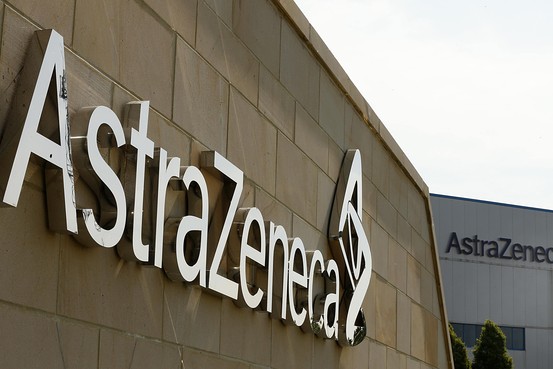
AstraZeneca bags another FDA orphan status in cancer
pharmafile | April 17, 2015 | News story | Sales and Marketing | AstraZeneca, Cancer, FDA, GlaxoSmithKline, mekinist, melanoma, oncology, selumetinib, trametinib
The FDA has granted AstraZeneca’s cancer medicine selumetinib orphan drug designation for the treatment of uveal melanoma.
The company will be celebrating as only two days ago the pharma giant was on the receiving end of this FDA status for its anti-CTLA-4 monoclonal antibody tremelimumab for the treatment of malignant mesothelioma.
Uveal melanoma is a rare disease in which cancer cells form in the tissue of the eye, and selumetinib works by inhibiting the MEK pathway, which is involved cell division and is often overactive in cases of cancer.
“This is a devastating disease for which there are currently no effective treatment options once it spreads beyond the eye,” says Antoine Yver, head of oncology, global medicines development at AstraZeneca. “Selumetinib could potentially become the first effective medicine for these patients. The Orphan Drug Designation is an important regulatory advancement as we further our development plans for the treatment in uveal melanoma.”
A Phase III study evaluating selumetinib and chemotherapy in patients with first-line metastatic uveal melanoma is currently underway, and the UK firm is expecting results to be available later this year.
The compound is also being investigated for use in several other disease areas, including non-small-cell lung cancer (NSCLC) and thyroid cancer.
In NSCLC, the drug failed to meet its primary endpoint of overall survival in a Phase II trial for patients whose tumours are KRAS mutation-positive. However it met its key secondary endpoints of progression-free survival, objective response rate, and alive and progression-free at six months – and based on these results it entered the Phase III SELECT-1 study.
Last year AstraZeneca also announced that it would be collaborating with the Babraham Institute, Cancer Research UK, Cambridge University and Addenbrooke’s Hospital to try and identify the best drug combinations for selumetinib in pancreatic cancer.
This is just one of many deals for the company in Cambridge, following its £330 million move to the area. Earlier this week it also announced that its Cambridge biotech arm MedImmune would be teaming up with Immunocore to study immunotherapy treatments for melanoma.
Several other pharma firms have drugs in the growing class of MEK inhibitors, including Mekinist (trametinib) from GlaxoSmithKline, cobimeinib from Roche, and MEK 162 from Novartis and Array BioPharma
AstraZeneca acquired exclusive worldwide rights to selumetinib from Array in 2003.
George Underwood
Related Content

GSK’s Jemperli accepted for FDA review for endometrial cancer treatment
GSK has announced that the US Food and Drug Administration (FDA) has accepted its supplemental …

FDA approves ImmunityBio’s Anktiva bladder cancer treatment
ImmunityBio has announced that the US Food and Drug Administration (FDA) has approved Anktiva (N-803, …

Roche’s Alecensa approved by FDA as lung cancer treatment
Roche has announced that the US Food and Drug Administration (FDA) has approved Alecensa (alectinib) …






